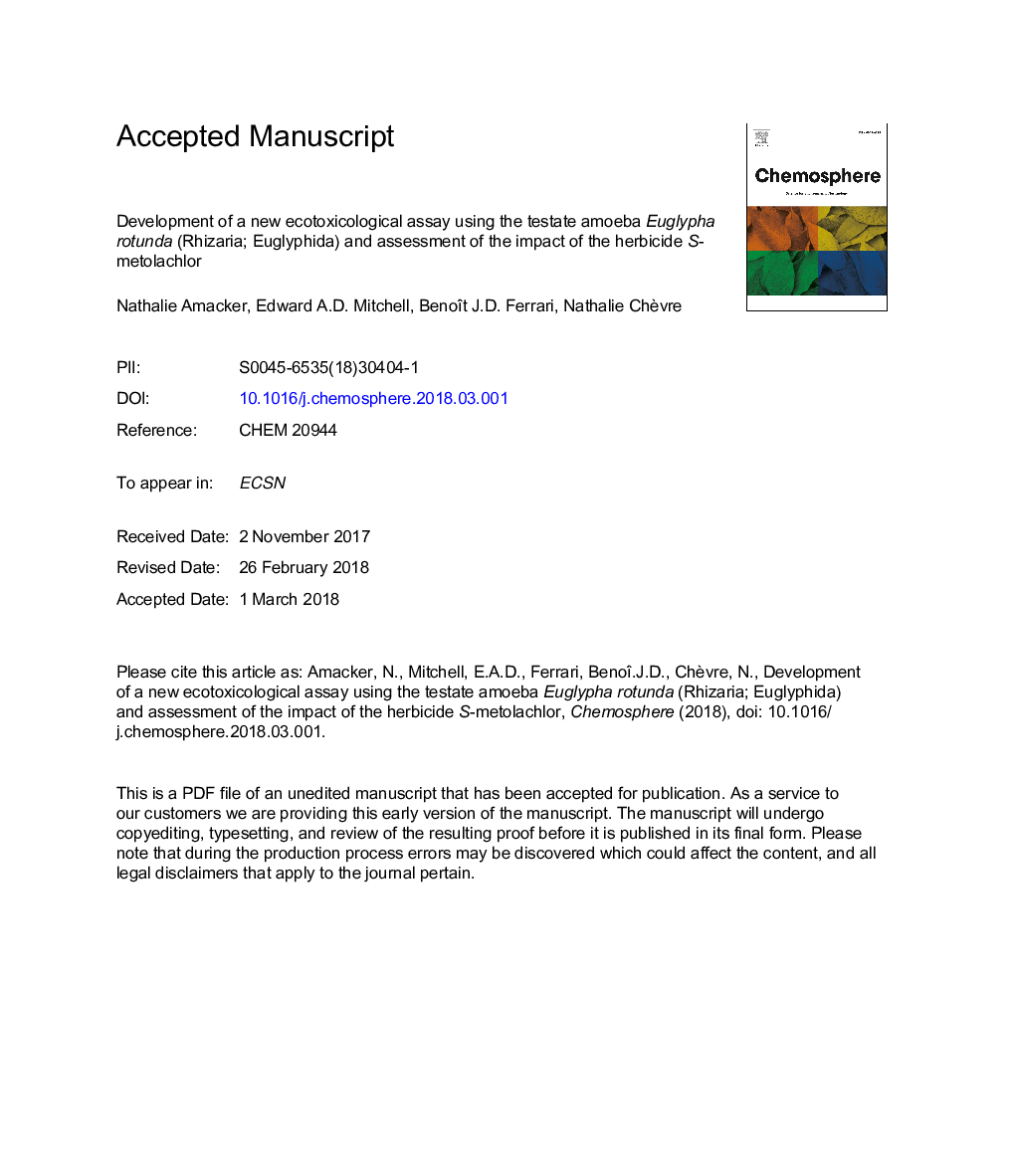| Article ID | Journal | Published Year | Pages | File Type |
|---|---|---|---|---|
| 8851504 | Chemosphere | 2018 | 33 Pages |
Abstract
An ever-increasing diversity of potentially toxic chemical compounds are being developed and released into the environment as a result of human activities (e.g. agriculture, drugs, and cosmetics). Among these, pesticides have been shown to affect non-targeted wildlife since the 1960s. A range of ecotoxicological tests are used to assess the toxicity of pesticides on various model organisms. However most model organisms are metazoans, while the majority of Eukaryotes are unicellular microorganisms known as protists. Protists are ubiquitous organisms of key functional roles in all ecosystems but are so far little studied with respect to pesticide impact. To fill this gap, we developed a new ecotoxicological test based on Euglypha rotunda, a common soil amoeba, grown in culture flask with Escherichia coli as sole food source. We tested this assay with the herbicide S-metolachlor, which is known to affect cell division in seedling shoots and roots of weeds. Reproducible growth conditions were obtained for E. rotunda. The growth of E. coli was not affected by the herbicide. The growth of E. rotunda was affected by the herbicide in a non-linear way, growth being significantly reduced at ca. 15 μg/L, but not at 150 μg/L. Our results show the potential for using soil protists in ecotoxicology and adds to the growing body of evidence for non-linear impacts of pesticides on non-target organisms. With the acquisition of additional data, the protocol should be suitable for standard ecotoxicological tests.
Related Topics
Life Sciences
Environmental Science
Environmental Chemistry
Authors
Nathalie Amacker, Edward A.D. Mitchell, Benoît J.D. Ferrari, Nathalie Chèvre,
